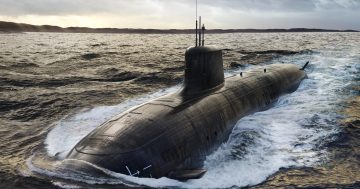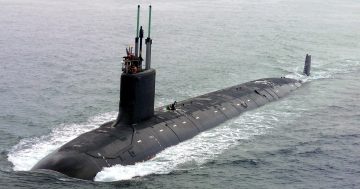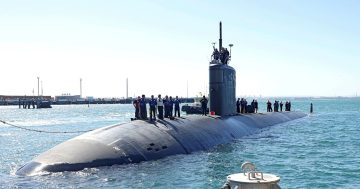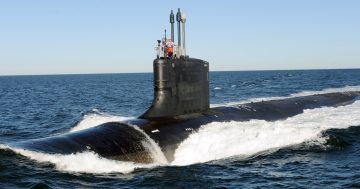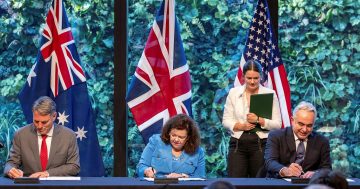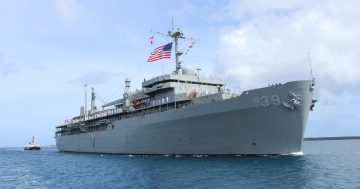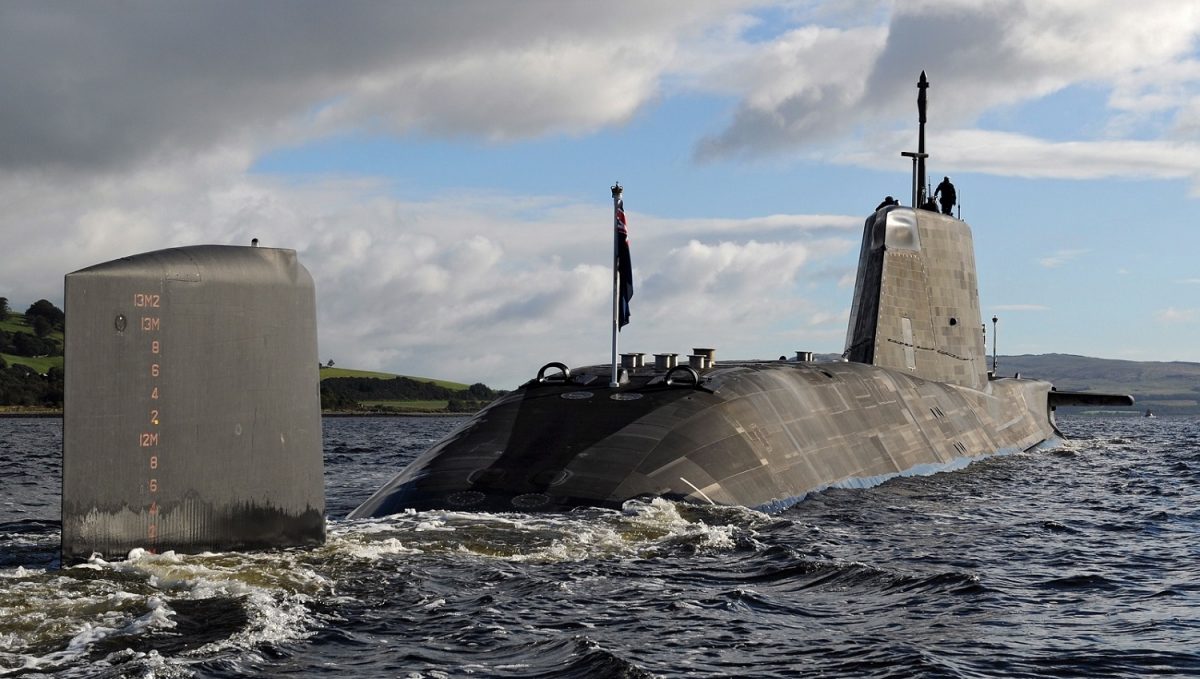
Astute class SSN, HMS Ambush. Will the Australian Government acquire similar subs? Photo: UK MoD.
With details on arguably the most important defence acquisition decision Australia has ever made expected to be revealed next week, media speculation over which nuclear-powered submarine (SSN) Australia will buy under the AUKUS construct has reached fever pitch in recent days.
Prime Minister Anthony Albanese departed Australia for India yesterday and, after meetings with his Indian counterpart Narendra Modi, he will continue on to the United States where he will meet President Biden and British PM Rishi Sunak next Tuesday Australian time.
It is expected the meeting of the three AUKUS leaders in San Diego on Monday local time will include an announcement on the “optimal pathway” Australia will take in acquiring an SSN capability, whether it be a design of UK or US origin, what combat system it will use, where the boats will be built, and in what timeframe they will be delivered.
There are three options Australia is reported to be considering:
- The acquisition of US-designed Virginia class SSNs.
- The acquisition of the final two of the UK Royal Navy’s planned Astute class SSNs, and then move to the UK-designed next-generation SSN(R) program which will replace the Astute class from the late 2030s as a partner.
- Wait for the SSN(R) and host forward-deployed US and UK SSNs in Australian waters in the interim.
As we have observed previously, option one may be the most difficult to achieve, as US production is several boats behind that required by the US Navy to fulfil its own requirements, let alone those of Australia. The Virginia class is also a big boat, with some analysts saying it’s too big for Australia’s capacity to man them.
With the final two Astute boats in production and due to be launched in the next few years, option two would, on face value, provide an SSN capability to Australia soonest – possibly by the end of this decade – plus it would also provide some much-needed export dollars to the UK which is suffering from severe budgetary constraints. But while it may allow the Royal Navy to accelerate its own SSN(R) development plans, it will leave it two boats short until the SSN(R)s enter service.
Option three would likely mean the longest wait for an Australian SSN, but would also provide the best opportunity for Australia to develop its own sovereign nuclear industry and capabilities without being rushed. And with both the UK and US ‘pivoting’ towards the Indo-Pacific region in the past decade anyway, forward-deployed subs from these countries should provide some of the geostrategic security Australia is looking for until it can get its own SSNs.
If option three is taken, this will mean a more extensive (and expensive) refit of Australia’s conventionally powered Collins class submarines – the youngest of which has been in service for 20 years – will be required in order to keep them operationally relevant until the late 2030s. Current plans call for a just partial upgrade including new engines, upgrades to the combat systems, and new weapons.
Whichever option is taken, an Australian SSN will likely have a US-made combat system – the system that integrates the boat’s navigation, sensors, communications, and weapons systems – as Australia is more likely to operate and integrate with US forces over the service lives of the boats.
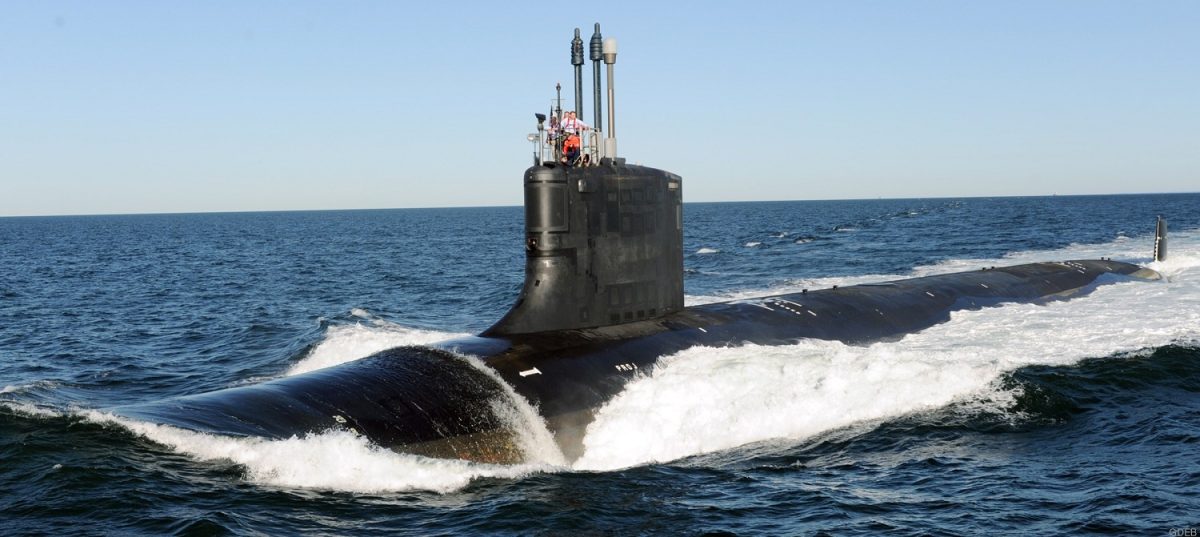
Virginia class SSN, USS Missouri. These subs are also reportedly under consideration. Photo: US Navy.
Interestingly, two media reports published overnight – both of which cite multiple reliable but unnamed sources – provide vastly differing predictions of what route Australia will take.
A 9 March report in Reuters claims Australia will acquire five Virginia class boats in the 2030s, and that the US Navy will forward-deploy its own Virginia and Los Angeles class SSNs to Western Australia from 2027 as an interim measure. The reports cites information given to Reuters by “four US officials” speaking on condition of anonymity. The report did not specify what boats Australia would acquire beyond the first five in order to realise its planned fleet of eight.
Rival Bloomberg paints a very different picture, claiming on 9 March that Australia will acquire a modified British class submarine fitted with a US combat system, but may also be provided with US Virginia class boats as an interim measure. Citing “people familiar with the matter … who asked not to be identified” in its report, it said the subs would “take years to produce”.
If either of these two reports are correct, buying a mix of SSN classes would only add additional operational and sustainment risk to a program which still needs to overcome numerous technical, diplomatic, budgetary, and geopolitical obstacles in order to be realised.
When asked about the reports by journalists travelling with him in India this morning (9 March), Mr Albanese said, “I’ll be making further comments about specific proposals [in the US]. I look forward to announcing those details … on Monday in San Diego.”
I guess we’ll know for sure on Tuesday.












